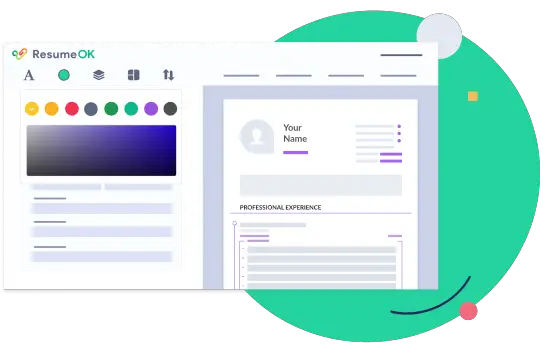Covid-19 came out of nowhere and took everyone by surprise. Besides affecting people with health problems, a high percentage of employees and job seekers took a hard hit. Unemployment has skyrocketed and suddenly, getting or keeping a job has become a struggle.
We wanted to know more about this problem from the people that were directly impacted and understand more about their fears and future expectations. Therefore, we have conducted a survey on 2,891 job seekers, from the United States, in August 2020. Our goal was to better understand how they think the Covid-19 epidemic crisis will impact their career.
The survey reveals some interesting trends and facts. What stands out is the pessimism among those that were hit directly by the crisis.
Here are some of the most important findings from the survey:
More than half of the job seekers expect the Covid-19 Crisis to have a long term impact on their career
There’s a lot of pessimism among job seekers. 55.42% of them expect that the ongoing crisis will have a severe impact on their careers. The most pessimists are among the industries that were impacted the most. Job security is now a serious fear among half of the respondends.
Only 27.71% were optimistic and said that they do not see any impact cause by the crisis.
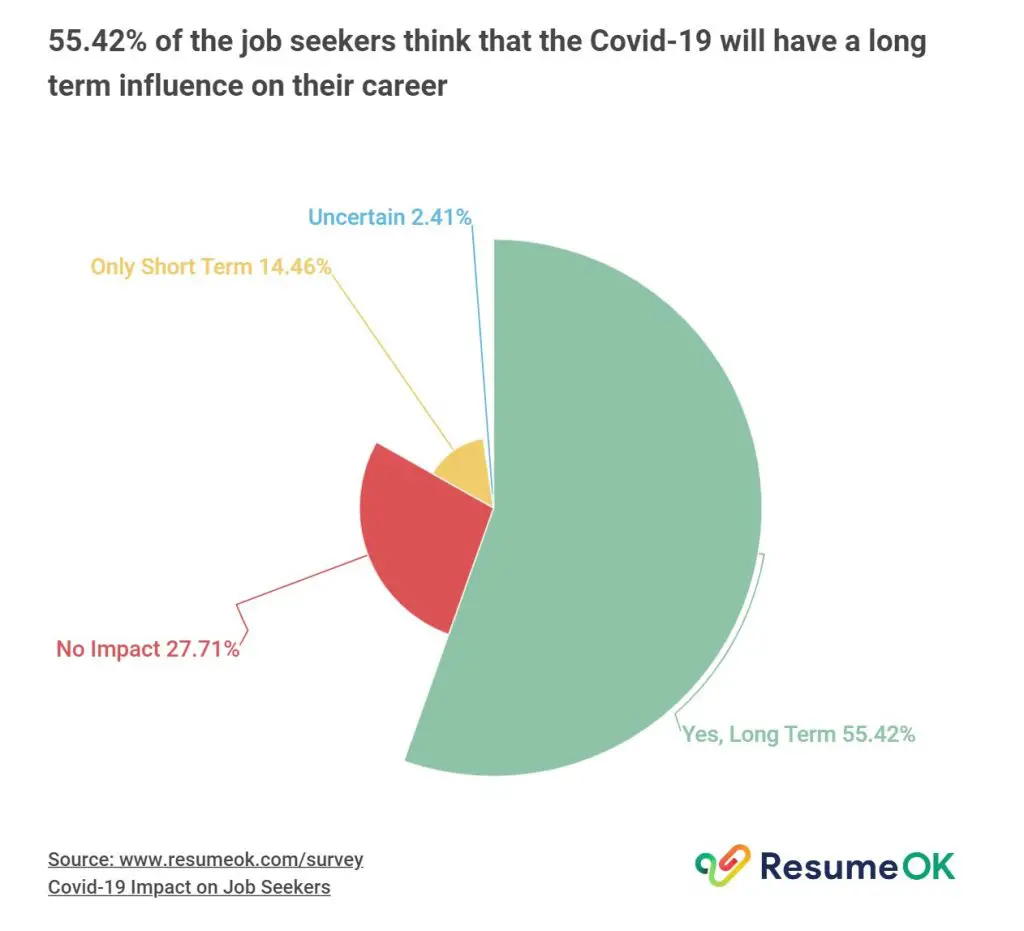
Share this Image On Your Site
Among those that have been laid off since the pandemic has started, we have even more uncertainty. From this group, 68.6% of them think that their careers will be effected in a negative way.
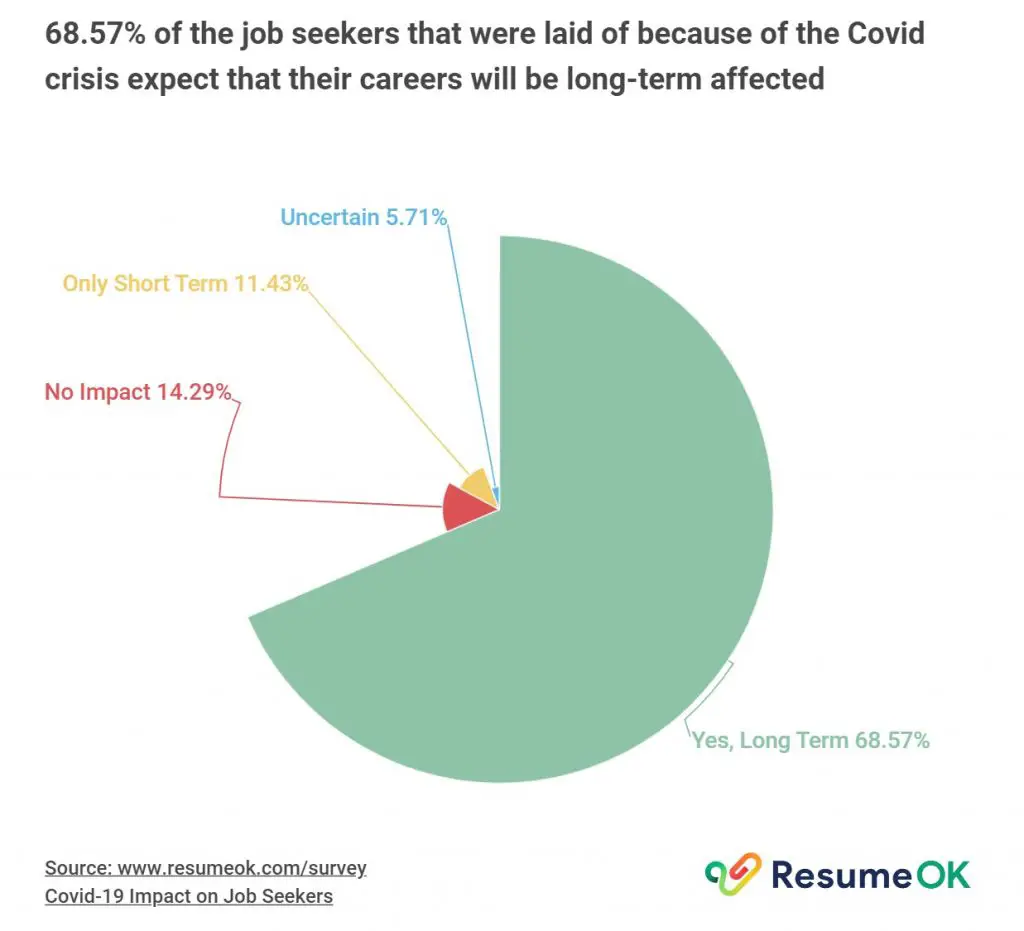
Share this Image On Your Site
Job Seekers have changed their salary expectations because of the Covid-19 Crisis
More than half of the people that have responded to our survey now have different salary expectations in comparison to before the crisis. To be more precise, 54.65% claim to now have different expectations.
Some of the people that received unemployment benefits which exceeded their monthly salary have changed their expectations and now want a higher income.
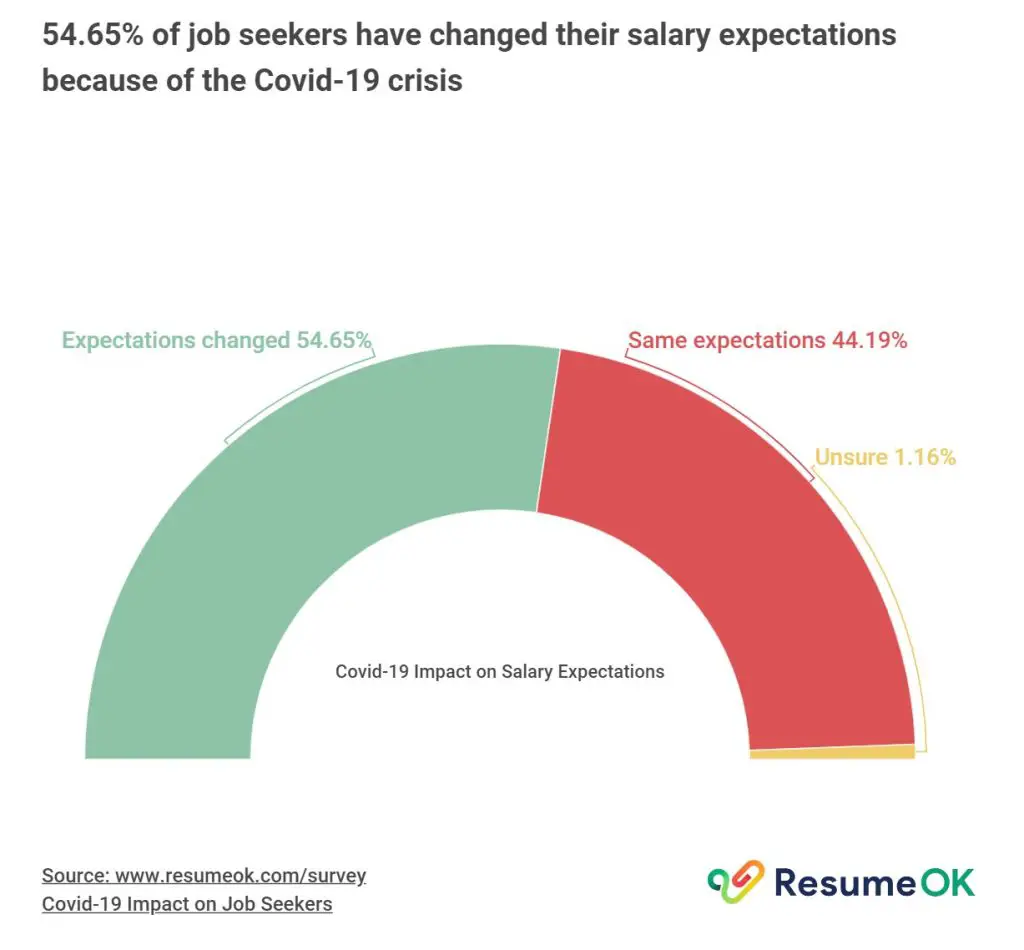
Share this Image On Your Site
On the other hand, the another group of people the stands out is the one which are over 50 years old. They have decreased their salary expectations, because they find it much harder to get a job.
The responses are mixed among all age groups.
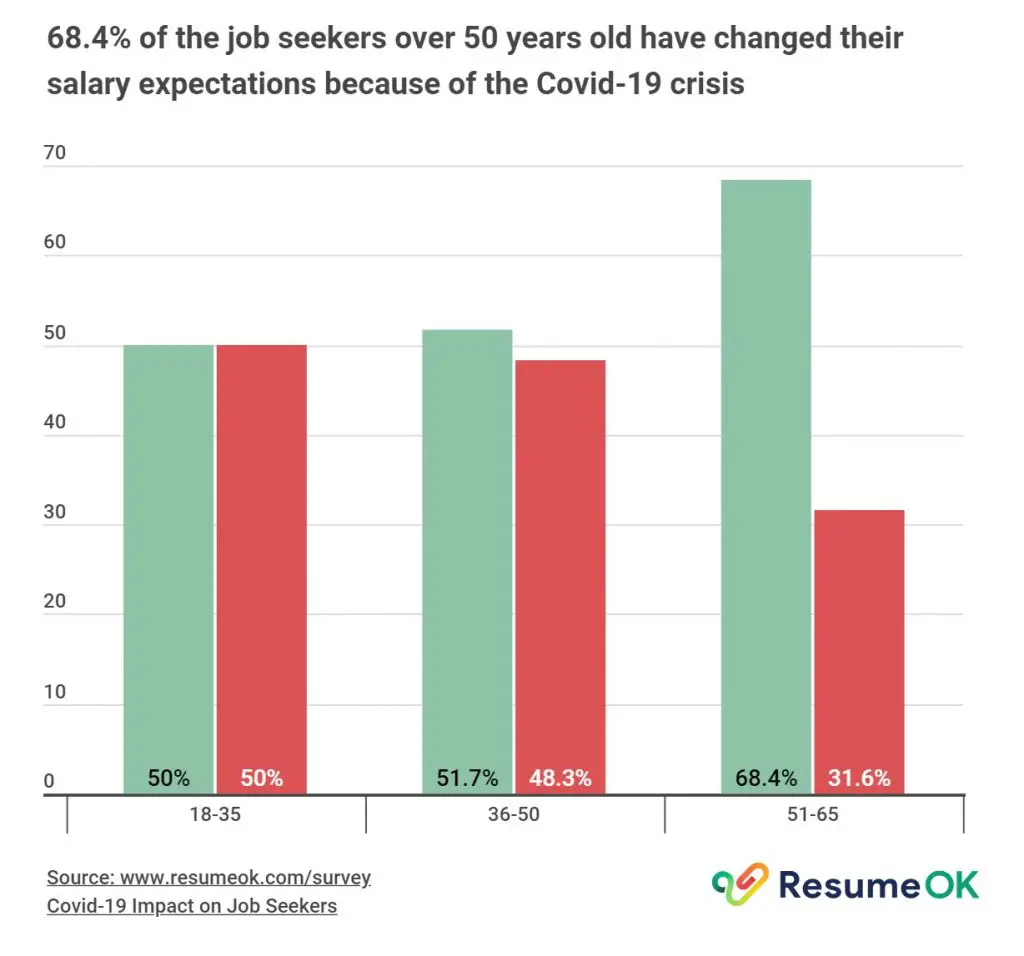
Share this Image On Your Site
Job seekers find it significantly harder to get a job today than before the pandemic
Most people find it very complicated to get a job today, even though many of the restrictions have been lifted in many states. Over 74% of the people that responded to our Covid-19 survey claimed that it’s much more complicated to find a job today in comparison to how it was before the pandemic kicked of.
19.5% said that nothing has changed in the job seeking process. This is especially the case in the industries were the pandemic had little to no impact.
Only a small percentage of 6% think that it’s now easier to get a job than before.
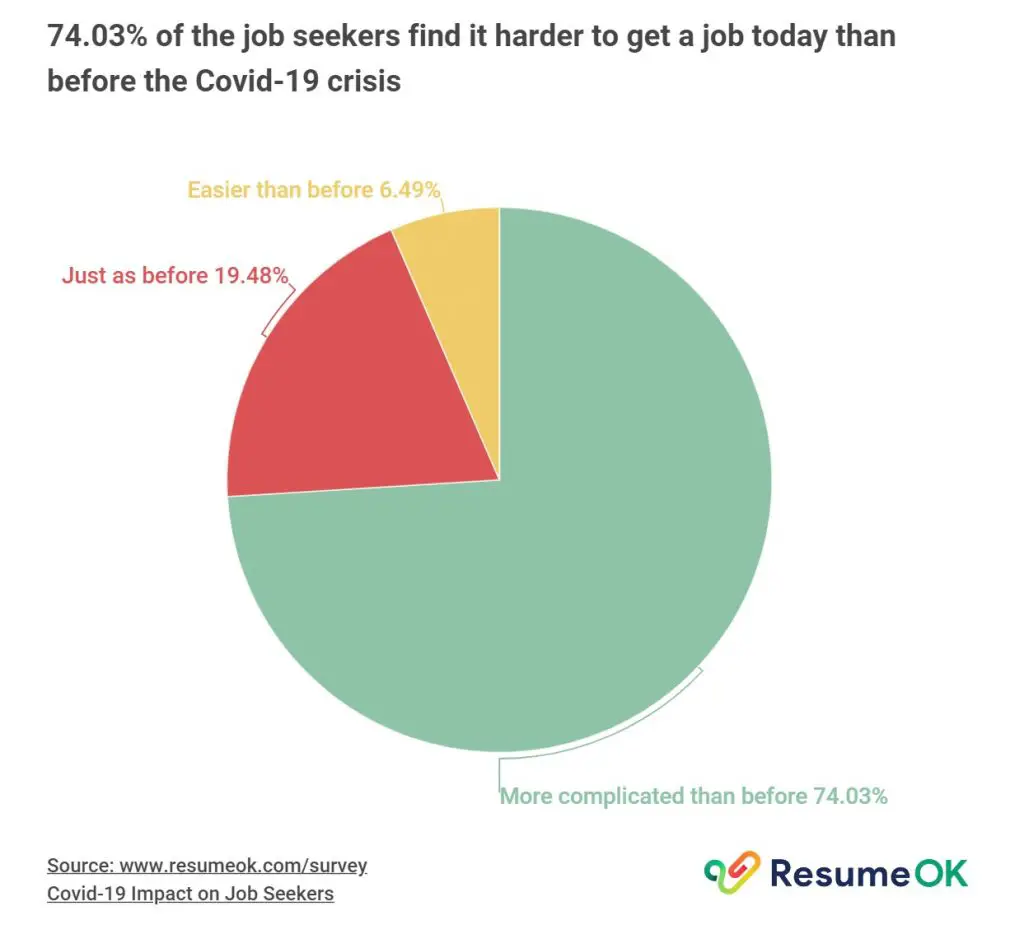
Share this Image On Your Site
Job seekers think more about working remotely
People are more open and aware of remote working, and a significant number of them are considering now all types of jobs, including remote. 67.11% of them are willing to take any position, whether it’s remote or on-site.
Only 13.1% of them have a stronger preference towards remote jobs.
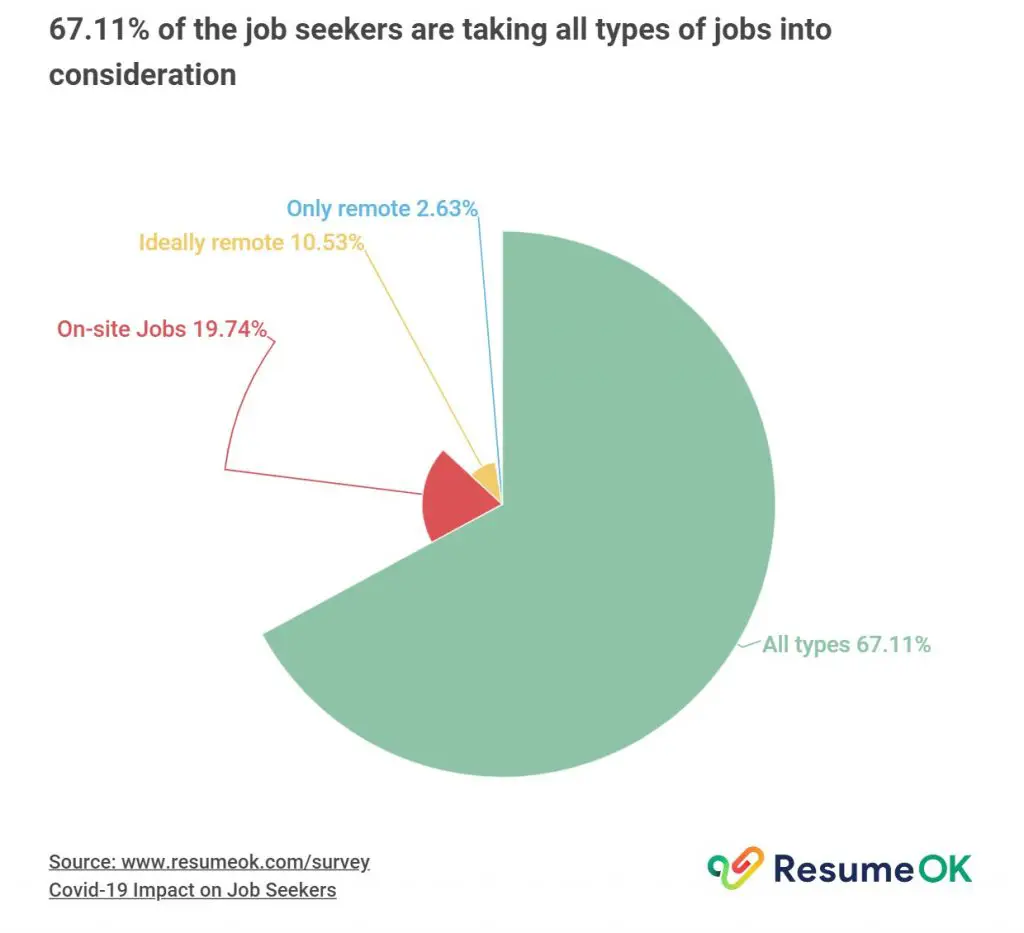
Share this Image On Your Site
Covid-19 Crisis is among the main reasons why people are searching for a job
When asked why they were looking for a job, 35.8% of the respondents said that they were forced to do so by the crisis caused by Covid-19. A similar percentage is for people that are interested in changing jobs, and 20.9% want a higher salary.
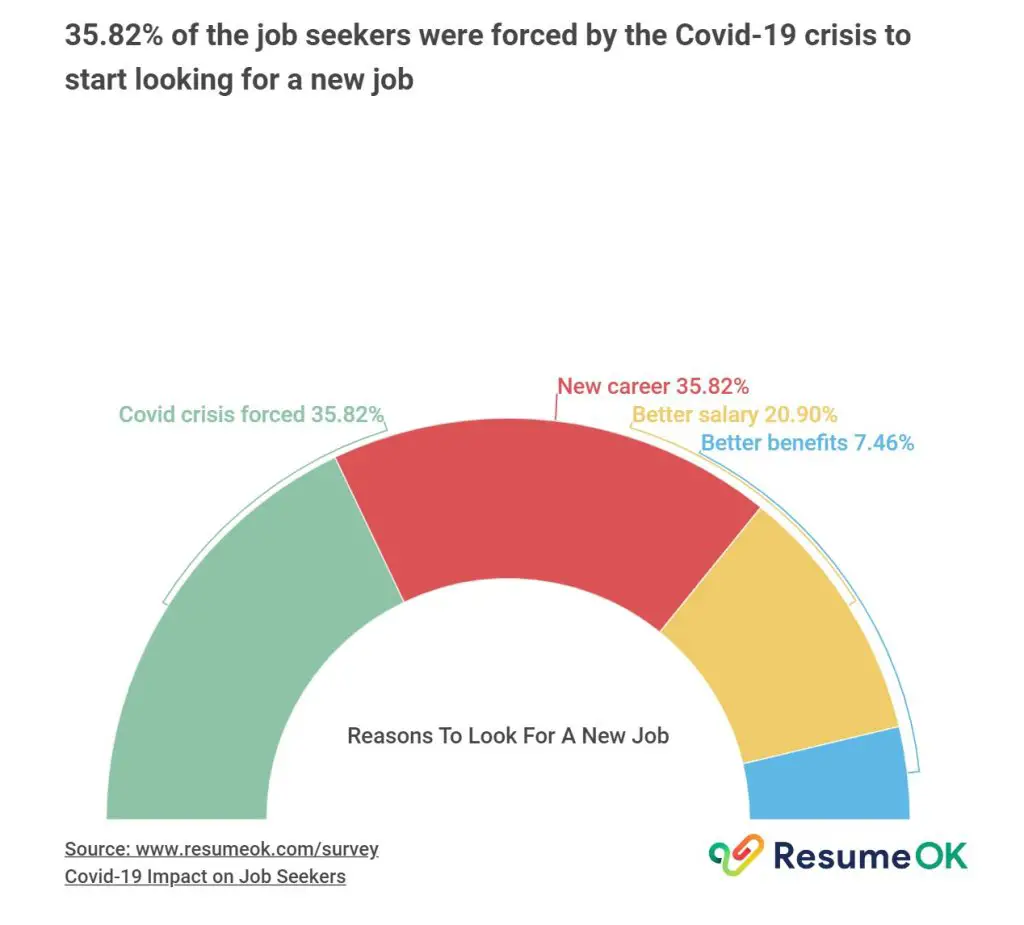
Share this Image On Your Site
About the respondents
At the time of filling out the survey, 27.7% of the respondents have taken unemployment benefits in the last months.
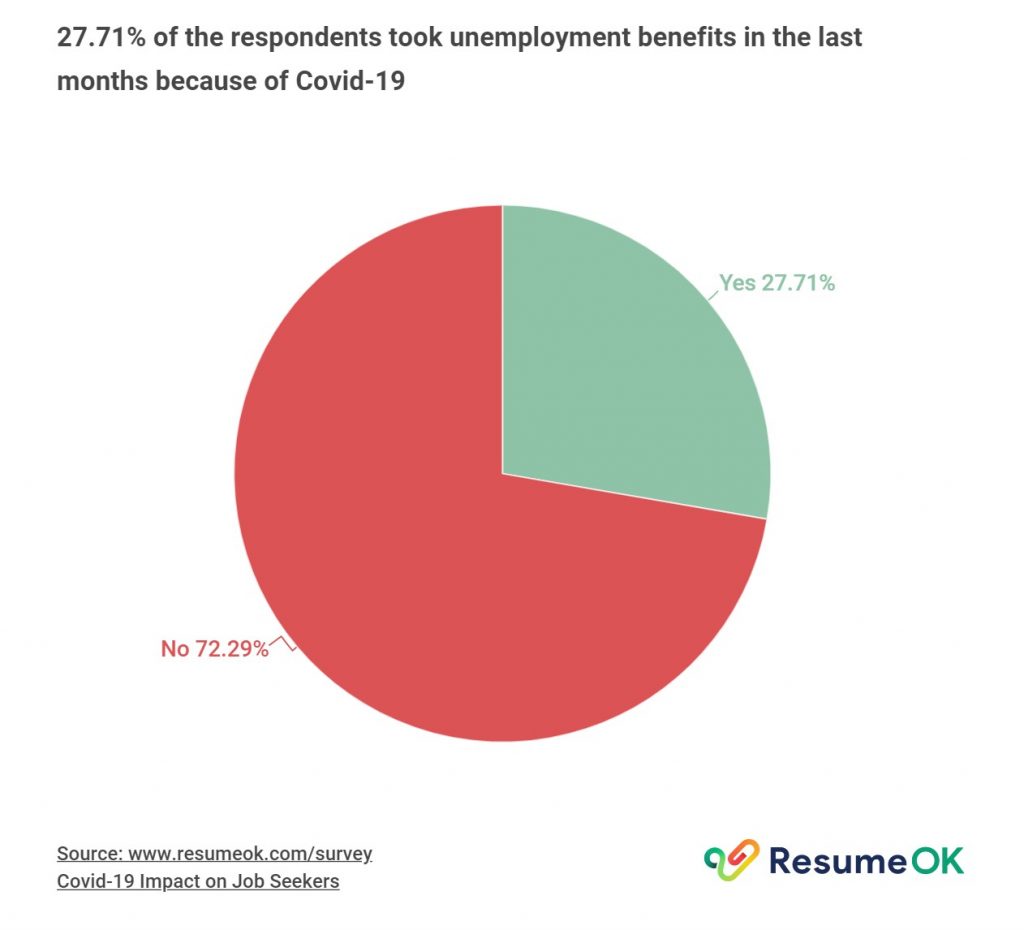
A big majority of them were currently unemployed and have been browsing for a good job opportunity in the last months.
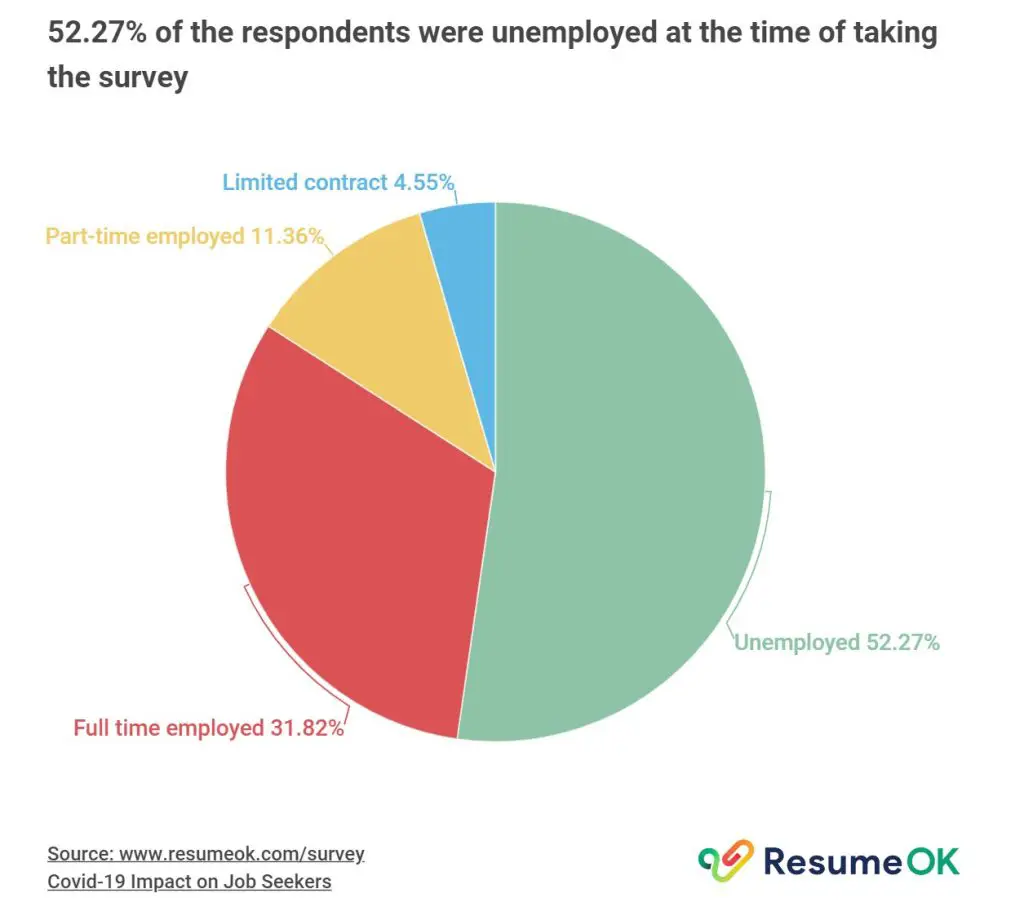
An important number of the respondents have taken unemployment benefits in the last months.
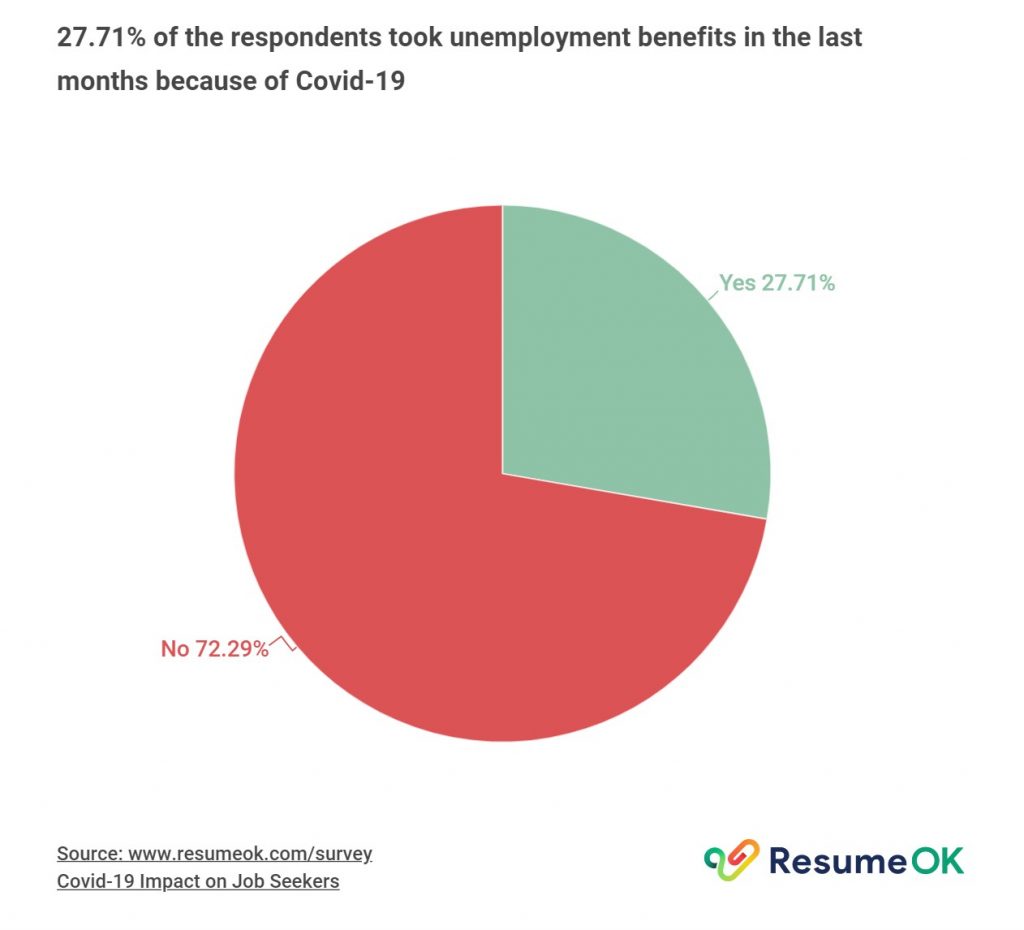
The survey was taken on ResumeOK between the beginning of July and mid August 2020. It was targeted only to United States citizens. Feel free to contact us if you have any enquirers about the survey.

